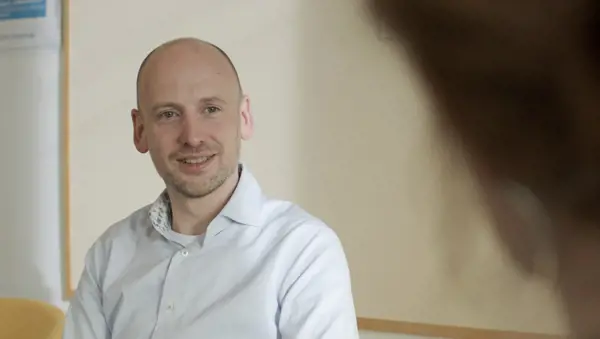'E-orders via Peppol are a new step in the digitalization of government procurement'
'Our mission is to simplify the procurement process of the State through digitalisation. That is why we have now piloted e-orders,' says Wouter Scholten, project leader at the CPO-office of BZK.
'With an e-order, a State purchaser sends an order digitally directly to a supplier. The supplier can then process the order very quickly and immediately send back a flawless e-invoice. That is not entirely new, but the accessible way we are now organising it is,' says Scholten.
What is new?
In the pilot with e-orders that Scholten conducted, Digipoort and the global Peppol network were used. This allows government departments to exchange procurement messages with suppliers. These can be e-invoices or e-orders, but also contract data or status updates. 'Because Peppol is a global standard, more and more companies and governments are connecting to it. As a result, it is becoming increasingly accessible,' says Scholten.
Making e-orders accessible
'Although suppliers can already receive e-orders from the State with a direct connection to Digipoort, this is only cost-effective for very large market players. There is still much to be gained by also sending orders digitally to smaller suppliers. For them, the advantage is that orders are entered directly and flawlessly into their order system without manual work. With the e-order data, they can immediately create an invoice that the State can process efficiently, with faster payment as an added benefit. That is why we are now focusing on the combination of Digipoort and the Peppol network.'
Pilot: e-orders via Peppol
Together with the Netherlands Forensic Institute (NFI) and a specialised supplier, the originally German company Merck, Scholten set up a pilot for e-orders. Since it was the first time this was done in this way at the State, there were naturally technical challenges to overcome. Scholten: 'It succeeded; the e-ordering between NFI and Merck is now in production to the great satisfaction of both parties.'
Towards digital business
'This summer, we already tackled the outgoing e-invoice. Government departments will soon also be able to send them via Digipoort and the Peppol network. As the next step, we have now made e-orders easily accessible for government departments and their suppliers,' says Scholten. 'This way, we want to create the conditions to support the entire procurement chain with new digital possibilities.'
BZK system responsible
Because BZK (Dutch Ministry of the Interior) is system responsible for State procurement, every step - to further digitalise the system - is coordinated interdepartmentally. Thus, Scholten presented his pilot with e-orders to the Interdepartmental Committee on Procurement and Contracting (ICIA). This committee has taken note of the new opportunities that State departments now have for e-ordering via Digipoort and Peppol. Moreover, the ICIA has committed to start making the necessary preparations in 2023 to implement e-orders. Scholten: 'With this pilot, we are ready for the next step; State departments can now start implementing e-orders in their procurement systems. We are happy to help them along the way so that this becomes the norm across the State.'
Text and photo: Remon Scheinhardt, content advisor BZK NMBF/IFHR Directorate
